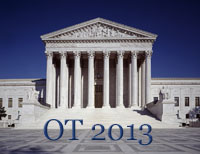Uber Retirement
 Although by no means a new question regarding retirement, the noteworthy growth of gig companies in the sharing economy has renewed concerns that even more American workers will lack access to employment-based retirement plans. Although some argue that the gig economy offers workers advantages including more independence and flexibility, company-sponsored retirement saving is not one of them. This is a dangerous state of affairs, as employment-based retirement plans make up a critical part of an individual’s strategy for retirement security.
Although by no means a new question regarding retirement, the noteworthy growth of gig companies in the sharing economy has renewed concerns that even more American workers will lack access to employment-based retirement plans. Although some argue that the gig economy offers workers advantages including more independence and flexibility, company-sponsored retirement saving is not one of them. This is a dangerous state of affairs, as employment-based retirement plans make up a critical part of an individual’s strategy for retirement security.
Such retirement plans, like the nearly-ubiquitous 401(k) plans, provide a necessary bulwark against destitution in old age, especially given that Social Security provides only partial income replacement and few Americans have put away much in private savings. Yet, independent contractors, which is how most gig companies classify their workers, are approximately two-thirds less likely than standard employees to have access to an employer-provided retirement plan.
Much academic and judicial ink has already been spilt over whether Uber drivers and other members of the sharing economy are members of the so-called “contingent” workforce or “precariat” (part-time, leased, temporary, and per diem workers), not entitled to receive retirement benefits as part of their employment. Whether these employees are statutory employees is of utmost importance because it largely determines whether gig workers are covered by employment laws, as most such laws center on the employer-employment relationship.
What all these jobs have in common is that the work activity is happening outside of the traditional safety net of employment and are highly unstable. Whereas statutory employees are covered in the United States by numerous labor and employment law statues that provide security and protection in the workplace, workers in these alternative work arrangements are not. Once stable employment relationships have given way to relationships that are much more arms-length, regardless of whether it is a contractor situation, temporary employment, or a one-time encounter.


 (This is another post in our series,
(This is another post in our series,